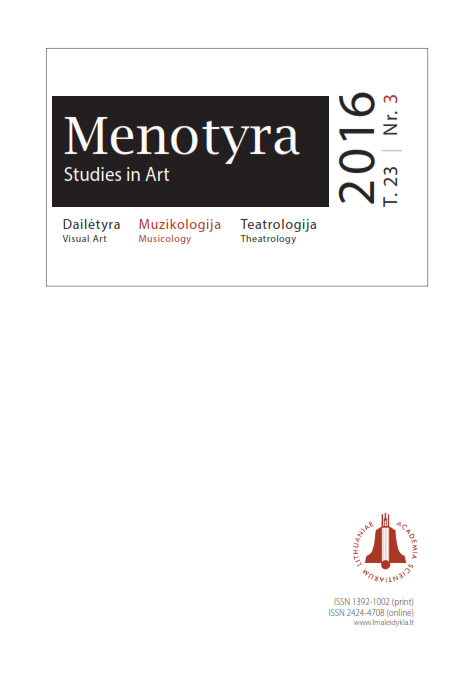Muzikinis ugdymas Kauno gubernijos pradinėse mokyklose XIX a. II pusėje
Musical training at elementary schools of the Kaunas province in the second half of the 19th century
Author(s): Kamilė RupeikaitėSubject(s): Fine Arts / Performing Arts, Music, School education
Published by: Lietuvos mokslų akademijos leidykla
Keywords: elementary school; musical education; singing; Kaunas province
Summary/Abstract: This article, based on archival material stored at Kaunas County archives, provides a review of the situation of musical education at elementary (mostly state) schools of the Kaunas province in the second half of the 19th century. Teaching of singing in 126 schools (among them, 86 state, 10 Jewish elementary, 13 parish state, 1 city, 4 communal Talmud Torah, and 12 private schools) is discussed.After the uprising of 1863–1864, Russian state schools were being established very intensely and the ideolog y and cultural policy of Czarist Russia was clearly reflected even at schools of the smallest townships of the Kaunas province. The goal of musical training was to indoctrinate with Russian culture through song not only infidel pupils, but their families as well.The aim of the article is, based on the reports of school inspectors and other relevant archival material, to discuss the quality and methods of teaching, the qualification of teachers, the influence of musical training on cultural atmosphere of towns and townships in the Kaunas province. From quite detailed reports of the inspectors one can judge that the ideological aspect of teaching singing was the most important. The inspectors and teachers followed watchfully the reaction of local non-Russian inhabitants towards Russian songs.Pupils were taught aurally, had to know the system of notes, treble clef, scale singing; two-voiced and sometimes even three-voiced singing was practiced. The teachers were using popular Russian tutorials and collections of songs. The highest attention was given to the quality of singing of the imperial Russian anthem “God save the Tsar”. The hymn, several Russian Orthodox hymns and Russian folk songs made up the repertoire of singing at elementary schools. The situation was very similar at private and community schools.“Literary-musical evenings”, which were organized in quite a number of schools, were highly popular with numbers of local listeners.
Journal: Menotyra
- Issue Year: 23/2016
- Issue No: 3
- Page Range: 170-191
- Page Count: 22
- Language: Lithuanian

